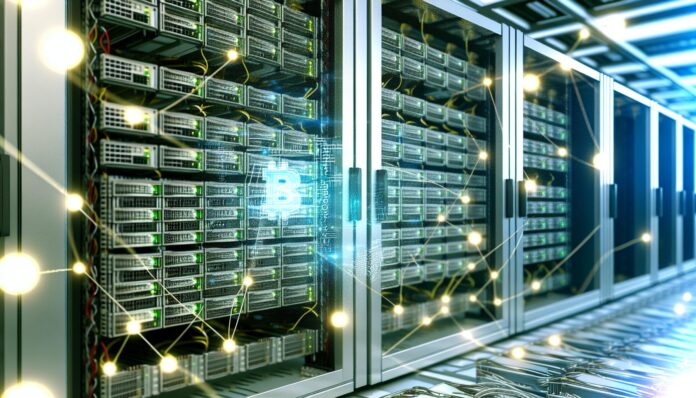Subtitle: Building the Next Generation of Trust Through Decentralized Artificial Intelligence
The intersection of decentralization and AI is not merely a technical advancement but a transformative shift in how trust is built within technological systems. Because the digital environment is evolving rapidly, developers and businesses are prioritizing secure, private, and transparent mechanisms that support ethical innovation. Most importantly, the emerging trust layer is setting new benchmarks across industries by integrating blockchain and advanced AI protocols.
Furthermore, as noted by industry leaders on platforms like Built In and Oodles Blockchain, decentralization in AI offers a more resilient digital infrastructure. This movement not only enhances data integrity but also democratizes computational power, inviting a diverse range of contributors to the technological dialogue.
The Evolution of Trust: From Centralization to Decentralized AI
Traditional artificial intelligence systems typically emerge from centralized models where a single organization holds vast power. Consequently, when a centralized system is compromised, the ripple effects can undermine public trust. Besides that, such frameworks often struggle with ensuring data privacy, algorithmic transparency, and fairness, thereby raising ethical concerns.
Because decentralizing AI spreads data, computational responsibilities, and governance among multiple entities, the likelihood of a single point of failure diminishes. In addition, decentralization reflects the core principles of blockchain technology where no one entity maintains absolute control. As detailed on Crypto for Innovation, this fundamental shift builds an ecosystem where each participant can operate as a guardian of trust.
How Decentralized AI Establishes a Trust Layer
Centralized systems are often criticized as opaque and non-transparent, colloquially known as “black boxes.” Because these systems offer little insight into how decisions are made, regulators and users alike have faced significant challenges in understanding their processes. Therefore, decentralized AI leverages open-source protocols and immutable public blockchains to enhance transparency. Every update, data transaction, and process is recorded permanently, reinforcing accountability at every step.
Moreover, experts argue that this level of openness empowers regulators and developers to deeply audit and verify system integrity. Most importantly, real-time feedback from communities contributes to continuous system improvements. With such robust mechanisms in place, decentralized AI can navigate complex issues of bias and mismanagement, as noted in recent discussions on Blockchain.News.
Privacy and Security: Dual Pillars of the Trust Layer
Privacy and security are the dual pillars that uphold the modern trust layer in decentralized technologies. Most notably, while blockchains offer a high degree of accountability, their public nature can expose sensitive information. Therefore, contemporary privacy innovations like zero-knowledge proofs have become essential. These methods verify the validity of data and computations without exposing any underlying details.
Besides that, advanced techniques like federated learning and encryption policies ensure that raw data remains securely at home. As a result, only abstract model updates are shared, thereby refining AI models without compromising individual privacy. Such strategies, as highlighted on Blockchain.News, enhance both data security and trust in the system.
Additionally, these advances allow for robust reputation systems and detailed audit trails. Consequently, industries that demand high levels of security—such as healthcare and finance—can safely adopt decentralized AI technologies with confidence.
Decentralized AI in Practice: Use Cases and Real-World Impact
Decentralized AI is already finding real-world applications that underline its potential to transform various sectors. Because collaborative innovation is at its core, research institutions, startups, and established companies alike have begun to share computational resources and datasets. Therefore, this cooperative model not only levels the playing field but also fuels rapid technological advancements.
For instance, decentralized AI is being used in predictive maintenance across complex global supply chains, ensuring that systems remain efficient and resilient. In addition, health diagnostics and climate modeling projects are increasingly reliant on distributed models to deliver high accuracy and transparency. Such examples demonstrate the practical benefits of decentralized frameworks, a perspective supported by insights on Oodles Blockchain.
Challenges on the Road to Full Decentralization
While decentralized AI offers promising solutions, transitioning from centralized systems poses numerous challenges. Most importantly, regulatory compliance is an ongoing hurdle that involves complex international and local rules regarding data privacy and security. Because frameworks are in the early stages of development, aligning all stakeholders remains a work in progress.
In addition, the technical complexity of managing disparate platforms and ensuring interoperability demands innovative solutions. For example, coordinating resources from idle GPUs or integrating advanced cryptographic protocols requires cohesive management. However, as noted on Crypto for Innovation, progress is steady, and the technical building blocks necessary for a robust trust layer are already materializing.
The Future of the Trust Layer in Emerging Technologies
Looking forward, the convergence of decentralization and AI heralds a new era for digital trust. Most notably, the future is underscored by the need for transparent, secure, and equitable digital systems. Because stakeholders across industries are now prioritizing ethics and accountability, the trust layer is poised to become a cornerstone of technological governance.
Furthermore, embracing these innovations will set new standards for accountability and integrity. Therefore, as new technologies emerge and evolve, continuous refinement of protocols and policies will be essential. Ultimately, the journey toward a comprehensive trust layer is both a technical and societal transformation—a future where decentralized AI not only functions efficiently but does so transparently and ethically.
References
- Blockchain.News: Decentralization and AI
- Crypto for Innovation: Decentralized AI
- Oodles Blockchain: Decentralized Artificial Intelligence
- BuiltIn: The Case for Decentralizing AI



